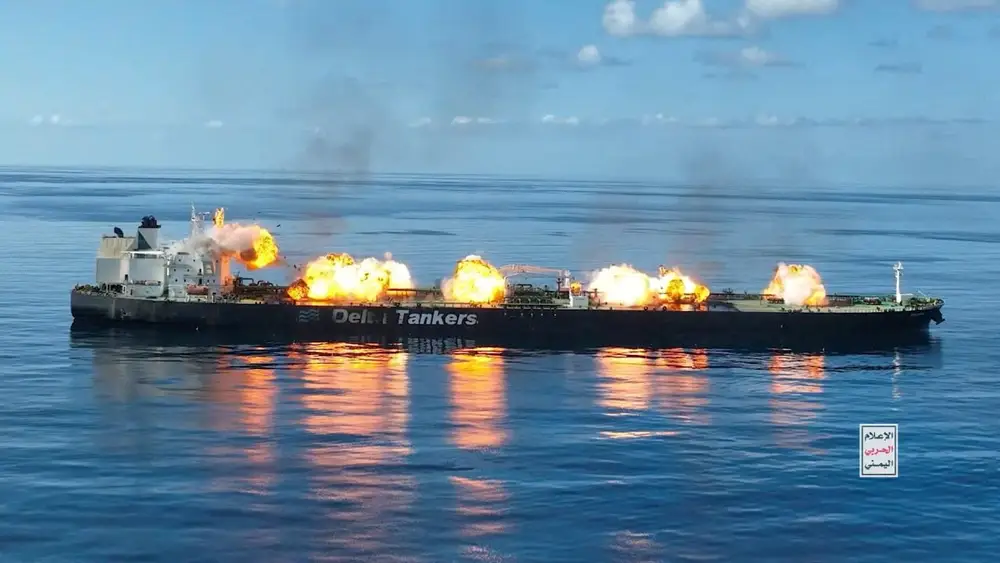Some ships are adding thousands of miles to journeys to avoid the threat of Houthi attacks off Yemen

Houthi attacks in the Red Sea have included oil tankers like the Greek-flagged Sounion.
Some cargo ships are extending their journeys by up to 10 days and thousands of miles to avoid Houthi attacks in the Red Sea, The New York Times reported on Wednesday.
More than a year ago, Houthi rebels based in Yemen began targeting ships and vessels in the Red Sea, which they said was in response to Israel’s escalations in Gaza.
However, the rebels have also attacked ships with no obvious connection to the Israel-Hamas conflict.
Maritime historian Salvatore Mercogliano told the Times the situation was one of the most significant challenges shipping had faced for some time.
A report by the Defense Intelligence Agency said that at least 65 countries’ trade interests had been affected by Houthi attacks on commercial shipping as of April.
There have been about 130 such incidents involving commercial ships since October 2023, per figures collated by the Armed Conflict Location and Event Data Project.
Diverting ships around Africa’s Cape of Good Hope adds thousands of nautical miles, up to two weeks of transit time, and about $1 million in fuel costs for each voyage, per the report.
It also said container shipping through Red Sea, which typically accounts for about 10% to 15% of international maritime trade, had declined by about 90% between December 2023 and February.
The US and EU have sent warships to the Red Sea and Gulf of Aden to prevent Houthi attacks, but the move has had little impact.
According to Portwatch, a database run by the IMF and Oxford University, the average number of container ships passing through the Red Sea a week as of December 1 was 26, down from 73 the same time last year.
As well as longer journey times and higher costs, the management consultancy Inverto estimated that an additional 14 million tonnes of carbon dioxide had been emitted since the crisis began.






